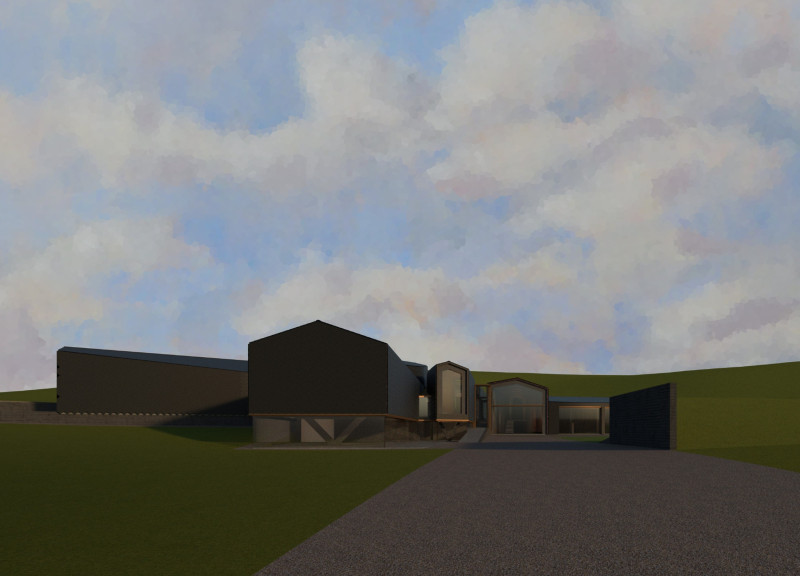5 key facts about this project
The Lake Mývatn Community House, known as Tún, is located on a hill that overlooks Lake Mývatn. The design serves as a communal space where residents can connect with one another and their environment. It emphasizes the importance of cultural and natural history while creating a functional area for community activities. The overall concept centers on interconnected volumes, each facilitating interaction and social engagement.
Connection to Context
The design features a series of connected forms that flow into each other, creating a village-like atmosphere. Each architectural volume plays a role in promoting communal living. The arrangement considers the site’s landscape and historical structures, such as long boats and long houses. This thoughtful design enhances the cultural significance of the building, grounding it in local history.
Community Engagement
A prominent aspect of Tún is the interior slope and terrace, serving as a central gathering space. This area invites residents to come together, fostering social interaction and engagement. Circulation routes are intentionally designed to encourage movement through the space, allowing individuals to engage with one another naturally throughout their daily routines.
Sustainability and Functionality
Functional spaces for education and upcycling demonstrate a commitment to sustainability. Workshops and resource exchange areas integrate into the design, empowering residents to repurpose materials and actively engage in their community. This approach not only meets immediate needs but also encourages a long-term commitment to environmental awareness.
Interaction with the Landscape
While specific materials are not detailed, the design suggests a connection to the natural environment. The possibility of using locally sourced materials is implied, which would enhance the integration of the structure within its setting. This focus on context creates a visual and functional relationship with the surrounding area, leading to a space that respects both landscape and community needs.





















































